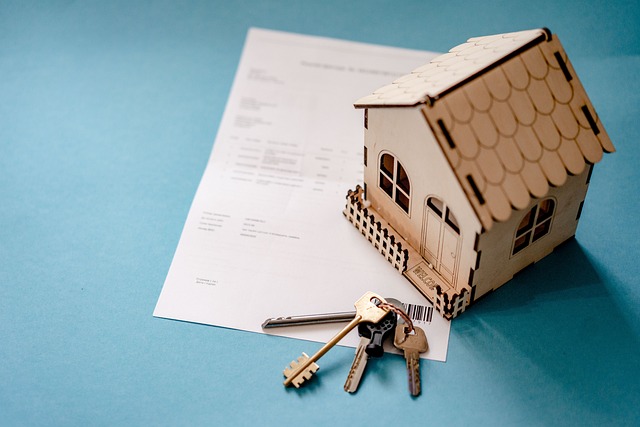Singapore's Executive Condominiums (ECs) are a significant housing option designed for middle-income residents, serving as a link between private and public housing. As of the latest updates, Singapore Citizens (SCs) with household incomes up to S$14,000 who do not own another flat are eligible to purchase ECs, while Permanent Residents (PRs) who haven't owned a flat in the last five years and meet the income ceiling set by the Housing & Development Board (HDB) can also apply. Developers must be Singaporean entities with a valid building license, having completed at least five residential projects in the past ten years, and work in partnership with the HDB to ensure compliance with standards. Owners have resale and subsale opportunities within the minimum occupation period framework. The design of ECs has evolved to incorporate sustainable living and smart home integration, reflecting the changing needs of eligible homeowners. Innovations like green building practices, modular furnishings, and smart materials are being adopted to enhance sustainability and modernity. Technological advancements in construction, such as Building Information Modeling (BIM) and prefabricated components, are streamlining the building process while ensuring safety and adherence to regulations. Developers must stay informed about Executive Condo Eligibility criteria as they are subject to change and directly impact the success of projects within this dynamic real estate segment in Singapore.
navigator in Singapore’s property landscape, the Executive Condo (EC) continues to evolve, blending practicality with aspirational living. This article delves into the latest trends shaping EC design and architecture, while also shedding light on the construction advancements that are redefining this housing segment. We explore the eligibility criteria pivotal for developers and owners, the regulatory framework guiding development projects, and the cutting-edge technologies propelling the EC sector forward. Join us as we dissect the nuances of EC construction updates, ensuring you stay informed on the latest in this dynamic field.
- Understanding Executive Condo Eligibility Criteria for Prospective Developers and Owners
- The Evolution of Executive Condo Design and Architecture Trends
- Latest Technologies and Innovations in Executive Condo Construction
- Navigating Regulations and Compliance in Executive Condo Development Projects
Understanding Executive Condo Eligibility Criteria for Prospective Developers and Owners

In Singapore, the landscape for property development includes a unique category known as Executive Condominiums (ECs). These hybrid homes offer the benefits of both private and public housing, catering to the middle-income group. Prospective developers and owners looking to invest in or purchase an EC must first grasp the eligibility criteria that govern these properties. As per the latest updates from the Singaporean government, individuals or families interested in owning an EC must satisfy certain conditions. For Singapore Citizens (SCs), the total household income ceiling must not exceed S$14,000, and they must not own another flat. Permanent Residents (PRs) are eligible to apply for an EC if they have not owned a flat for at least five years. Furthermore, they must also meet the monthly household income ceiling set by the Housing & Development Board (HDB). These criteria ensure that ECs remain accessible primarily to those intending to upgrade from public housing, aligning with the government’s efforts to provide housing options that cater to the varying needs of residents at different stages of their lives.
Understanding the eligibility for Executive Condos is crucial for developers and owners as it dictates who can purchase these units. Developers eyeing an EC project must comply with the criteria set by the HDB, which includes being a Singaporean entity with a valid building license and a track record of developing at least five residential projects in the last ten years. Additionally, they must engage in a collaborative effort with the HDB to ensure that the development adheres to the stipulated standards and guidelines. For owners, the eligibility extends beyond personal income and ownership status; it also encompasses resale and subsale opportunities within the minimum occupation period framework. Prospective buyers must navigate these criteria carefully to ensure a smooth transaction in line with the regulations governing ECs. Keeping abreast of these eligibility criteria is essential for anyone interested in the dynamic world of Executive Condo development and ownership in Singapore.
The Evolution of Executive Condo Design and Architecture Trends

In recent years, the design and architecture of Executive Condos (ECs) in Singapore have undergone significant transformations, reflecting the evolving lifestyles and preferences of their residents. Initially, these housing options were primarily focused on providing a high-quality living environment for individuals who did not qualify for public housing due to income limitations but whose household income was within the range set by the Housing & Development Board (HDB). Over time, the eligibility criteria for ECs have been refined to accommodate more middle-income families, leading to a surge in demand. This has, in turn, spurred developers to innovate and adapt their designs to cater to contemporary tastes and needs.
Today’s Executive Condos are characterised by a blend of functionality and aesthetics, with an emphasis on sustainable living and smart home technology integration. Architects are leveraging green building techniques and incorporating eco-friendly materials to enhance energy efficiency and reduce environmental impact. The interiors of these condos often feature open-concept layouts that maximize space and natural light, while modular furnishings and flexible design elements allow residents to customize their living spaces according to their lifestyles. With a keen eye on the future, the evolution of EC designs continues to be shaped by the needs of eligible homeowners, ensuring these residences remain relevant and desirable within the competitive Singapore property market.
Latest Technologies and Innovations in Executive Condo Construction

In the evolving landscape of Executive Condo (EC) construction, the integration of cutting-edge technologies and innovative practices is shaping the future of residential development. builders are increasingly adopting Building Information Modeling (BIM) to enhance project visualization, coordination, and efficiency. This advanced software allows for precise planning and simulation, ensuring that every aspect of the EC’s design can be optimized before construction begins. Moreover, the use of prefabricated components and modular construction methods is on the rise, offering faster completion times and reduced waste. These techniques not only expedite the building process but also improve the quality and sustainability of the final product.
Safety and sustainability are paramount in contemporary EC construction, with builders incorporating smart materials and green technologies to meet these objectives. Photovoltaic panels and advanced insulation materials are being integrated into designs to promote energy efficiency. Similarly, smart home systems enable residents to enjoy the benefits of automation and energy management, enhancing their living experience. Additionally, EC developers are increasingly considering Executive Condo Eligibility criteria to ensure that their projects cater to the needs of eligible applicants, aligning with government housing policies and providing a stable market segment for these developments. The synergy between technological advancements and regulatory compliance is paving the way for more resilient and responsive EC construction in Singapore’s dynamic property market.
Navigating Regulations and Compliance in Executive Condo Development Projects

In Singapore, Executive Condos (ECs) serve as a housing option for public housing residents who aspire to upgrade to a better living environment while still maintaining eligibility for housing grants. Navigating regulations and compliance in EC development projects is a multifaceted endeavor that requires developers to be well-versed in the nuances of Executive Condo eligibility. The Singapore government, through the Housing & Development Board (HDB), has established clear criteria for individuals to qualify for an EC. These criteria include being at least 21 years old with a valid Build-To-Order (BTO) application, and not owning any residential property at the time of application. Developers must ensure that their marketing and sales strategies align with these eligibility requirements to avoid potential issues that could arise from non-compliance.
Compliance with regulations extends beyond the initial eligibility criteria; it encompasses adherence to the Building Control Act, the National Environment Agency (NEA) standards, and other relevant statutory boards’ guidelines. The Construction and Estate Management (CEM) team within the HDB plays a pivotal role in overseeing the development process of ECs to ensure that all projects meet the required quality and safety benchmarks. Developers must stay abreast of these regulations, which are subject to change, to guarantee the smooth progression of construction and the eventual approval for the release of keys to residents. Engaging with legal experts and staying informed about policy updates are essential practices for developers navigating the intricacies of EC development projects in Singapore.
In conclusion, the landscape of Executive Condo development continues to evolve with a blend of innovative construction techniques and adaptable design principles that align with contemporary living standards. Prospective developers and owners must navigate the unique eligibility criteria associated with Executive Condos, ensuring compliance with the stringent regulations governing these projects. By leveraging the latest technologies in construction, such as smart building systems and sustainable materials, the industry is not only meeting the demands of modern living but also paving the way for more eco-friendly and efficient residential spaces. As these trends shape the future of Executive Condos, stakeholders are encouraged to stay abreast of design and architecture advancements, as well as the regulatory framework that guides development projects. This ensures that the Executive Condo market not only thrives but also upholds the highest standards of quality and integrity for its residents.
